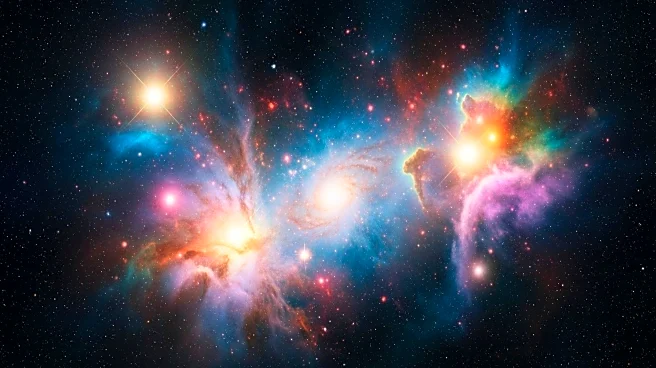What's Happening?
A recent study published in the Journal of Cosmology and Astroparticle Physics suggests that the universe will end much sooner than previously estimated. Researchers now predict the universe's demise will occur in 10 to the power of 78 years, a significant reduction from the earlier estimate of 10 to the power of 1,100 years. The study incorporated new insights into the decay of celestial objects like white dwarfs and neutron stars, using the concept of Hawking radiation to forecast their eventual disappearance.
Why It's Important?
The revised timeline for the universe's end has implications for cosmology and our understanding of cosmic evolution. It challenges existing theories about the longevity of celestial bodies and the processes governing their decay. While the timeframe remains far beyond human concern, the study contributes to the broader scientific discourse on the universe's lifecycle and the factors influencing its ultimate fate. It also highlights the importance of advanced technologies in refining our understanding of cosmic phenomena.
Beyond the Headlines
The study raises philosophical questions about humanity's place in the universe and the significance of our existence within a finite cosmic timeline. It prompts reflection on the nature of time and the impermanence of all things, encouraging a deeper appreciation for the present and the pursuit of knowledge. The findings also underscore the interconnectedness of scientific inquiry and existential contemplation.











